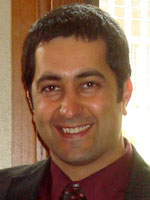Simplifying Value of Information Analysis With A Gaussian Approximation Approach
Speakers: Hawre Jalal and Fernando Alarid-Escudero
Date: Friday, February 10th from 10 AM – 12 PM
Location: HS 100 (Health Sciences Building, 155 College Street, Toronto ON)
Abstract
Value of information (VOI) analysis quantifies the opportunity loss associated with choosing a sub-optimal intervention based on current -uncertain- information. VOI can inform health policy because it quantifies the potential value of collecting additional information, resource allocation, research prioritization, and future research designs before any data collection takes place. Expected value of sample information (EVSI) measures the value of information from a finite sample. In practice, EVSI remains underutilized due to many conceptual and computational challenges associated with its application. The last few years have witnessed a dramatic growth in computationally-efficient methods to calculate EVSI, including metamodeling. However, little research has been done to simplify the experimental data collection step inherent to all EVSI computations, especially for correlated model parameters.
In our talk we will propose a general Gaussian approximation (GA) of the traditional Bayesian updating approach based on the original work by Raiffa and Schlaifer to compute EVSI. The proposed approach uses a single probabilistic sensitivity analysis (PSA) dataset, and involves two steps: (1) a GA step to compute the preposterior distribution of the parameters of interest and (2) a linear metamodel step to compute the EVSI on the preposterior distributions. The proposed approach is efficient and can be applied to a wide range of data collection designs involving multiple parameters and unbalanced study designs. Our approach is particularly useful when the parameters of an economic evaluation are correlated or interact and formal Bayesian updating is conceptually or computationally challenging.
Biographies
 Hawre Jalal, MD, PhD is an Assistant Professor at the Department of Health Policy and Management and a researcher at the Public Health Dynamic Laboratory at the University of Pittsburgh. His research focuses on using mathematical modeling, cost-effective analyses and econometrics approaches to address health policy and resource allocation questions. His current research involves illicit drug use, disability and aging. He is also interested in developing methods for calibration, communicating the impact of uncertainty, and conducting value of information analyses efficiently in complex models.
Hawre Jalal, MD, PhD is an Assistant Professor at the Department of Health Policy and Management and a researcher at the Public Health Dynamic Laboratory at the University of Pittsburgh. His research focuses on using mathematical modeling, cost-effective analyses and econometrics approaches to address health policy and resource allocation questions. His current research involves illicit drug use, disability and aging. He is also interested in developing methods for calibration, communicating the impact of uncertainty, and conducting value of information analyses efficiently in complex models.
Fernando Alarid Escudero, MS, is a PhD candidate and a Fulbright scholar at the University of  Minnesota School of Public Health, Division of Health Policy and Management. He is part of the colorectal CISNET team: Modelling Effective Health Policies for Colorectal Cancer, and the CERVICCS team: Comparative Effectiveness to define the Reasonable range of options for Cervical Cancer Screening. He holds a BSc in Biomedical Engineering from the Metropolitan Autonomous University (UAM) and a MS in Economics from the Center for Research and Teaching in Economics (CIDE), both in Mexico City. His work focuses on integrating methods of mathematical and statistical modelling in decision and cost-effectiveness analyses for chronic and infectious diseases, Bayesian methods in health decision sciences and value of information (VOI) analysis.
Minnesota School of Public Health, Division of Health Policy and Management. He is part of the colorectal CISNET team: Modelling Effective Health Policies for Colorectal Cancer, and the CERVICCS team: Comparative Effectiveness to define the Reasonable range of options for Cervical Cancer Screening. He holds a BSc in Biomedical Engineering from the Metropolitan Autonomous University (UAM) and a MS in Economics from the Center for Research and Teaching in Economics (CIDE), both in Mexico City. His work focuses on integrating methods of mathematical and statistical modelling in decision and cost-effectiveness analyses for chronic and infectious diseases, Bayesian methods in health decision sciences and value of information (VOI) analysis.
